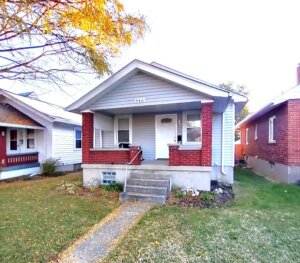An estate is all that’s left behind when someone passes away. This includes all material possessions, such as real estate, vehicles, furniture, and physical belongings, as well as the immaterial – financial positives and debts alike. If the deceased had prepared a will to be executed upon their death, then everything is fairly straight-forward in regards to who is in charge of settling the estate and making all of the decisions regarding it. It can be more complicated, and a much longer process, if they left no will behind. In this article, we’ll be discussing the role of the Executor (or Executrix).

Within the will, an Executor, or personal representative, will be named. Their purpose is to carry out the wishes of the deceased, and to properly manage and protect their estate’s financial assets. This generally means that the Executor will be a close family member or friend. Occasionally, it may be an attorney or accountant, if the person did not have anyone else that they thought would be more fit for the role within their immediate social circle. In cases where real estate (a house) is involved, it is up to the Executor to decide what to do with that real estate.
The first step you’ll be responsible for handling as the Executor is to collect official copies of the death certificate (see this link to the Ohio Department of Health to see how to obtain copies). You’ll want to get a dozen or so copies, because you’ll need one copy each to provide to each bank, lender, insurance provider, etc. Then, you’ll need to file a copy of the will with the county Probate Court. When an Executor is specified in the will, the Probate Court will officially appoint you as such, and you’ll be clear to go through with settling the Estate from there.
A lot of various tasks come with being appointed the Executor. You’ll have to notify debtors, beneficiaries, the federal government, the BMV, and anyone and everyone the deceased held subscriptions and accounts with – it’s also a good idea to notify the three major credit bureaus to add a death notice to the deceased’s credit report. Another great idea is to establish a bank account for the Estate very early on. You’ll be able to keep everything clean and separated this way, and pay any bills due from this bank account without any confusion.
It’s not uncommon for heirs of estates to live in another state, making it more difficult to know what to do with an inherited home in Cincinnati or Dayton, Ohio. While some families may elect to keep the home and pass it along to someone else in the family to move into, others have no need for another house, and decide that they’d like to liquidate it instead. This is especially true in cases where the estate also has sizeable debts to settle, whether they be medical bills, funeral expenses, credit card debts, or outstanding loans. Selling an inherited house can give the family immediate cash to pay down these expenses, and possibly pocket some cash that’s leftover at the same time.
Selling an inherited home through the MLS with a Realtor is often a troublesome process that just exacerbates the stress of the entire Estate settlement. You’ll have to deal with arranging some kind of cleaning and staging for showings, and if the home is full of various belongings, that will be a costly and time-consuming event to manage. After that, you have to be prepared to negotiate with potential buyers that ask for all kinds of repairs and financial concessions. If you manage to make it through to a contract, you still have the possibility of the sale falling through due to a low appraisal value or the lender backing out entirely. THEN you still have to calculate the commissions due to the Realtors involved in the deal, which typically will run you between 4% and 6% of your total sale price, eating a solid chunk out of the funds you’ll receive at closing.

A much simpler, and much faster alternative to this method of selling an inherited house, is to find a reputable and established investor that operates in the area the house is situated in, and get a cash offer from them directly. Real estate investment provides a host of benefits to both the local community and to the folks who need to sell their homes in the first place. Credible investors know how to provide an easy and streamlined purchase without the need for Realtors and their commissions, appraisers, showings, and lenders; they also won’t ask you for repairs or extra concessions.
Ohio Cash Buyers is an established local real estate investment company that is family-owned and operated, and we’ve been buying homes from folks just like you for nearly two decades now. We’re licensed General Contractors, and we have hundreds of renovations and thousands of property purchases and sales under our belts. We provide MORE than just a free, fair cash offer for homes. We also provide connections to valuable resources and knowledge, and do all that we can to help homeowners out of all kinds of situations. Check out some of our Case Studies to read about some of these situations!
Give us a call anytime to chat with us and receive your FREE cash offer on your inherited home in Ohio (no matter where you live). It takes about 15 minutes to give us the details and information we need to provide you with our cash offer, and there’s no obligation on your part beyond that. We buy homes in as-is condition, for cash, and we can close quickly and easily. Closing is scheduled at your convenience, and can be done remotely with a Notary that can meet you anywhere. You can also just fill out the form below to get started!
